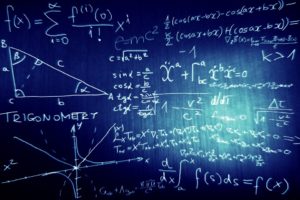
Credit: boscorelli / Shutterstock
Why doesn’t the world make sense? At the fundamental level of atoms and subatomic particles, the familiar “classical” physics that accounts for how objects move around gives way to quantum physics, with new rules that defy intuition. Traditionally these are expressed as paradoxes: particles that can be in two places at once, cats that are simultaneously alive and dead, apparently impossible faster-than-light signaling between distant particles. But quantum rules are perfectly logical and consistent—the “paradoxes” are the result of our trying to impose on them the everyday reasoning of classical physics.
What’s more, over the past several decades we’ve come to understand that the classical and quantum worlds don’t exactly operate by “different” rules. Rather, the classical world emerges from the quantum in a comprehensible way: you might say that classical physics is simply what quantum physics looks like at the human scale.











I guess because I’m a layman, albeit an INTJ layman, I simply don’t understand why physicists keep trying to explain things like “spooky action at a distance” in classical physics terms, i.e., particles “communicating” with each other. Doesn’t quantum physics suggest that the mystics are correct, that “All-is-One”? Ever since 1975 when I read the book “Intelligence Came First” (edited) by Ernest Lester Smith, I’ve assumed intelligence or consciousness is the ground of being that gives rise to physical reality. If all is one, totally and inextricably connected, it doesn’t have to communicate with anything else since it is everything. Rather, it simply “knows.”
Stephan, what do you think of Thomas Campbell’s Big TOE – that physical reality can be compared to a virtual reality created by a computer?
It was the famous physicist Richard P. Feynman who said that anyone who claims to understand quantum physics is either a fool or a liar.
It was another famous physicist Amit Goswami who said it was consciousness that creates matter, not the other way around.